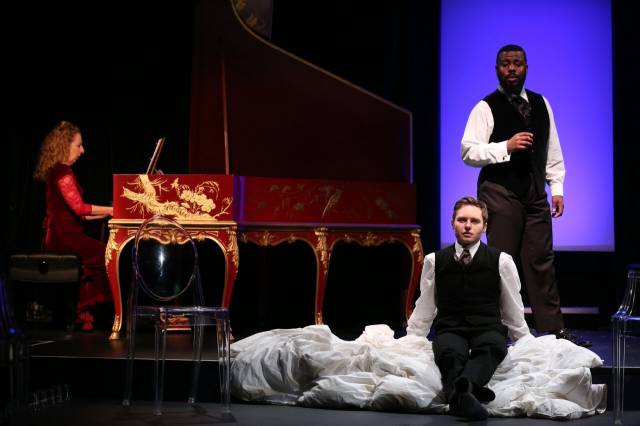

Hold in your hand a young man of twenty-four. He is laden with a secret, obsessive love for his already-betrothed friend, Charlotte. Behold this sad, unknown poet. His name is Johann Wolfgang von Goethe. His embarrassment of being so helplessly in love with Charlotte scars him. The only balm he chooses is writing. In a tireless fury, Goethe puts pen to paper. He creates an autobiographical character named Werther. Werther is also twenty-four years old and obsessively in love with a taken woman. Goethe writes for Werther a hellish fate which includes madness, unrequited yearning and suicide.
Embracing the emotionally-explicit literary style of Goethe’s day, Sturm und Drang, Goethe uses fictitious diary entries and letters to weave Werther’s woeful tale. He publishes this novella, The Sorrows of Young Werther, anonymously. Overnight, he becomes a star. His bare soul laid down on paper struck such a deep chord for European society that even Napoleon Bonaparte remarked that he had read the book seven times and kept a copy of it with him on his travels.
There is one half of the Ensemble for the Romantic Century’s inspiration for their theatrical concert, The Sorrows of Young Werther, at Symphony Space. Now, hold in your other hand the deeply romantic song-cycle, Dichterliebe (‘A Poet’s Love’, Opus 48), composed in 1840 by the German Romantic Robert Schumann. In this soul-stirring collection of songs, Schumann extracts sixteen poems of Heinrich Heine’s Lyrisches Intermezzo – a story about a gloom-stricken poet/knight who spends his days moping around his house and his nights dancing with a fairy. Schumann sets these poems against his sentimental composition, and the result is slightly ghostly, slightly heartbreaking.
Take these two whirls of energy and place them on a minimally-dressed stage (minimal except for two breathtaking grand pianos circa 1890). Watch how they play together. They waltz with effortless splendor. You are witnessing a true example of the German Lied, where the music and text intentionally blend together onstage, hoping to transcend the spectator to a different time and place.
The creators behind the Ensemble for the Romantic Century’s Liederabend do not ask for an easy theatre-making life. Their quest is to keep the Romantic era relevant. Yet, their audience need not be classical music nor literary snobs to glean affecting satisfaction from ERC’s creations.
Their talent pool is comprised of some of the best young performers on the scene. International diva and mezzo-soprano, Rinat Shaham, as young Werther’s object of obsession, projects a fervent inner life. Her sultry voice is rich milk-chocolate for the listener’s soul. Grammy-nominated baritone Sidney Outlaw brought the house to its metaphorical knees with a performance so enormous he well rivals any of opera’s most famous men. ERC founder and Executive Artistic Director Eve Wolf is an absolute star on the piano, emitting brilliant light.
Only one technical note: consider cutting out the 1970’s-ish grainy film clips in the background. The footage adds nothing to the impact of the drama or the tension of the moment.
At the performance I attend, the theatre was alive with the spirits of Schubert, Liszt, Brahms, Mahler, Goethe and other masters. Genius filled the air and mingled with our senses. The Ensemble for the Romantic Century should feel proud for giving a truly enchanted evening.